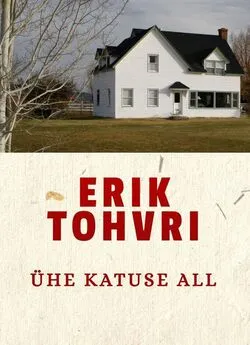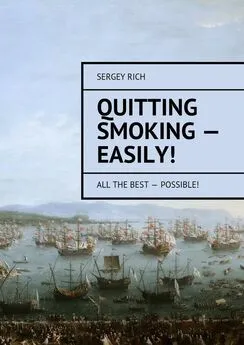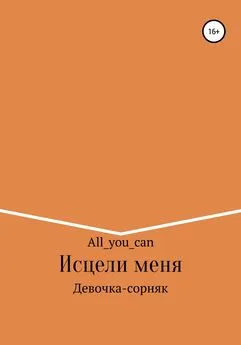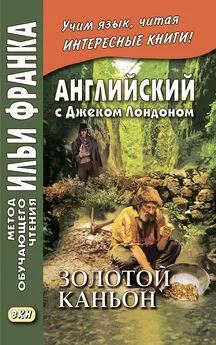All Flesh is Grass
- Название:All Flesh is Grass
- Автор:
- Жанр:
- Издательство:неизвестно
- Год:неизвестен
- ISBN:нет данных
- Рейтинг:
- Избранное:Добавить в избранное
-
Отзывы:
-
Ваша оценка:
All Flesh is Grass краткое содержание
All Flesh is Grass - читать онлайн бесплатно полную версию (весь текст целиком)
Интервал:
Закладка:
Weak tears were running down his cheeks at the thought of how long it had been since he'd had someone who would stay and eat with him.
“I got corn and potatoes roasting in the coals,” he said, “and I got peas and beans and carrots all cooked up together. That's them in the pot. There isn't any meat. You don't mind, do you, if there isn't any meat?”
При мысли о том, как давно ему не с кем было разделить трапезу, по щекам его потекли слезы.
— У меня тут в золе печеная картошка и кукуруза, — сказал он, — а в горшке похлебка: горох, бобы, морковка — все вместе. Только мяса никакого нету. Это ничего, что мяса нету, ты не против?
“Not at all,” I told him.
“I miss meat something dreadful,” he confided. “But they can't do anything about it. They can't turn themselves into animals.”
“They?” I asked.
— Нет, конечно, — сказал я.
— А мне страх как хочется мяса, — признался Таппер. — Но тут они ничего не могут поделать. Они не могут обратиться в животных.
— Они?
“The Flowers,” he said, and the way he said it, he made them a proper noun. “They can turn themselves into anything at all—plant things, that is. But they can't make themselves into things like pigs or rabbits. I never asked them to. That is, I mean I never asked them twice. I asked them once and they explained to me. I never asked again, for they've done a lot of things for me and I am grateful to them.”
— Ну, Цветы, — сказал он таким тоном, будто назвал кого-то по имени и фамилии. — Они могут обратиться во что угодно... во всякое растение. А в поросенка или в кролика никак не могут. Я и не прошу никогда. То есть больше не прошу. Один раз попросил, и они мне объяснили. И уж больше я не просил, они и так для меня сколько всего делают, стараются, спасибо им.
“They explained to you? You mean you talk with them.”
“All the time,” said Tupper.
He got down on his hands and knees and crawled into the hut, scrabbling around for something, with his back end sticking out, like a busy dog digging out a woodchuck.
— Они тебе объяснили? Ты что же, разговариваешь с ними?
— Ну да, все время, — сказал Таппер.
Он опустился на четвереньки, заполз в шалаш и стал рыться там, что-то разыскивая; зад и ноги его торчали наружу — ни дать ни взять пес в охотничьем азарте разрывает нору, добираясь до сурка.
He backed out and he brought with him a couple of crude pottery plates, lopsided and uneven. He put them down upon the ground and laid on each of them a spoon carved out of wood.
“Made them myself,” he told me. “Found some clay down in the river bank and at first I couldn't seem to do it, but then they found out for me and...”
“The Flowers found out for you?”
Потом он попятился и вылез наружу с двумя такими же, как горшок, кривобокими и корявыми глиняными тарелками. Поставил их наземь, в каждую сунул вырезанную из дерева ложку.
— Сам все сделал, — сказал он. — Глину нашел на берегу. Только сперва у меня не получалось, а потом они мне объяснили, как надо делать...
— Кто, Цветы объяснили?
“Sure, the Flowers. They do everything for me.”
“And the spoons?”
“Used a piece of stone. Flint, I guess. Had a sharp edge on it. Nothing like a knife, but it did the job. Took a long time, though.”
— Ну да. Они всегда мне помогают.
— А ложки ты чем выстрогал?
— Камнем. Наверно, это кремень. С острым краем. Не то что нож, а все-таки годится. Правда, пришлось строгать долго-долго.
I nodded.
“But that's all right,” he said. “I had a lot of time.”
He did a mopping job and wiped his hands meticulously on his trouser seat.
Я кивнул.
— Это ничего, — сказал Таппер. — Времени у меня сколько хочешь.
Он опять утер подбородок, потом старательно вытер ладони о штаны.
“They grew flax for me,” he said, “so I could make some clothes. But I couldn't get the hang of it. They told me and they told me, but I couldn't do it. So they finally quit. I went around without no clothes for quite a spell. Except for this hat,” he said. “I did that myself, without no help at all. They didn't even tell me, I figured it all out and did it by myself. Afterwards they told me that I'd done real good.”
“They were right,” I said. “It's magnificent. “
“You really think so, Brad?”
— Они вырастили для меня лен, чтоб я оделся. Но я никак не выучусь ткать. Они мне объясняли, объясняли, а у меня ничего не получалось. Ну, они и отступились. Я сколько времени голый ходил. В одной шляпе. Сам ее сделал, никто мне не помогал. Они мне даже не говорили ничего, я сам ее придумал и сам сплел. После они сказали — очень хорошо у меня получилось.
— Они совершенно правы, — подтвердил я. — Шляпа просто на диво.
— Правда, Брэд?
“Of course I do,” I said.
“I'm glad to hear you say so, Brad. I'm kind of proud of it. It's the first thing in my life I ever did alone, without no one telling me.”
“These flowers of yours...”
“They ain't my flowers,” said Tupper, sharply.
— Ну, конечно!
— Как я рад, что ты так говоришь! Знаешь, я вроде даже горжусь этой шляпой. За всю мою жизнь я ее первую сам сделал, никто мне не подсказывал.
— Это твои цветы...
— Они не мои, — резко прервал Таппер.
“You say these flowers can turn themselves into anything they want to. You mean they turned themselves into garden stuff for you.”
“They can turn themselves into any kind of plants. All I do is ask them.”
“Then, if they can be anything they want to be, why are they all flowers?”
— Ты говоришь, эти цветы могут обратиться во что захотят. Это значит — в разные овощи, которые у тебя на огороде?
— И в овощи, и во всякое растение. Мне надо только попросить.
— Но если они могут обратиться во что захотят, почему же они все до единого — цветы?
“They have to be something, don't they?” Tupper demanded, rather heatedly. “They might as well be flowers.”
“Well, yes,” I said. “I suppose they might.”
— Надо же им чем-то быть, верно? — с жаром, чуть ли не сердито сказал Таппер. — Чем плохо быть цветами?
— Нет, отчего же, совсем неплохо, — сказал я.
He raked two ears of corn out of the coals and a couple of potatoes. He used a pot-lifter that looked as if it were fashioned out of bark to get the pot off the fire. He dumped the cooked vegetables that were in it out onto the plates.
“And the trees?” I asked.
Таппер вытащил из горячих угольев два початка кукурузы и несколько печеных картофелин. Подобием ухвата, вырезанного, как мне показалось, из толстой древесной коры, снял с огня горшок. И разлил похлебку по тарелкам.
— А деревьями они не бывают? — спросил я.
“Oh, them are things they changed themselves into. I needed them for wood. There wasn't any wood to start with and I couldn't do no cooking and I told them how it was. So they made the trees and they made them special for me. They grow fast and die so that I can break branches off and have dry wood for fire. Slow burning, though, not like ordinary dry wood. And that's good, for I have to keep a fire burning all the time. I had a pocket full of matches when I came here, but I haven't had any for a long, long time.”
— Почему, в деревья они тоже обращаются. Мне ведь нужны дрова. Сперва тут никакого дерева не было, не на чем было готовить еду. Тогда я им объяснил. И они сделали деревья, нарочно для меня сделали. Деревья выросли быстро-быстро и сразу высохли, и а стал ломать сучья и разводить костер. Они горят очень медленно, не то что простой хворост. Это хорошо, у меня костер все время горит, никогда не гаснет. Сперва, когда я сюда пришел, у меня были полны карманы спичек. А теперь нету, давным-давно нету.
I remembered when he spoke about the pocket full of matches how entranced he had always been with fire. He always carried matches with him and he'd sit quietly by himself and light match after match, letting each burn down until it scorched his fingers, happy with the sight of flame. A lot of people had been afraid that he might bunt some building down, but he never did. He was just a little jerk who liked the sight of fire.
“I haven't any salt; said Tupper. “The stuff may taste funny to you. I've got used to it.”
Слушая про карманы, полные спичек, я вспомнил: Таппер всегда без памяти любил огонь. Он вечно таскал с собою спички и, тихонько сидя где-нибудь в одиночестве, зажигал их одну за другой и восторженно глядел на язычок пламени, пока спичка не догорала до конца, обжигая ему пальцы. Многие в Милвилле опасались, как бы он не устроил пожар, но ничего такого не случилось. Просто этот чудак очень любил смотреть на огонь.
Читать дальшеИнтервал:
Закладка:



![Вячеслав Неклюдов - All не инклюзив [СИ]](/books/1083177/vyacheslav-neklyudov-all-ne-inklyuziv-si.webp)




